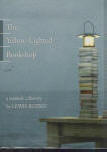
Alex Tang
Articles
- General
- Theology
- Paul
- Karl Barth
- Spiritual Formation
- Christian Education
- Spiritual Direction
- Spirituality
- Worship
- Church
- Parenting
- Medical
- Bioethics
- Books Reviews
- Videos
- Audios
- PhD dissertation
Spiritual writing
- e-Reflections
- Devotions
- The Abba Ah Beng Chronicles
- Bible Lands
- Conversations with my granddaughter
- Conversations with my grandson
- Poems
- Prayers
Nurturing/ Teaching Courses
- Sermons
- Beginning Christian Life Studies
- The Apostles' Creed
- Child Health and Nutrition
- Biomedical Ethics
- Spiritual Direction
- Spiritual Formation
- Spiritual formation communities
- Retreats
Engaging Culture
- Bioethics
- Glocalisation
- Books and Reading
- A Writing Life
- Star Trek
- Science Fiction
- Comics
- Movies
- Gaming
- Photography
- The End is Near
My Notebook
My blogs
- Spiritual Formation on the Run
- Random Musings from a Doctor's Chair
- Random Sermons from a Doctor's Chair
- Random Writings from a Doctor's Chair
- Random Spirituality from a Doctor's Chair
Books Recommendation
---------------------
Medical Students /Paediatric notes
 Lewis Buzbee, 2006. The Yellowed-Lighted Bookshop. Saint Paul, MN: Graywolf Press.
Lewis Buzbee, 2006. The Yellowed-Lighted Bookshop. Saint Paul, MN: Graywolf Press.
review by Dr Alex Tang
This is a book for bibliophiles who suffer from bibliolust whenever the moon rises or the sun rises (and the time in between), for people who cannot resist walking into a bookstore even when it is out of their way, and for people who lust after books of whatever kind. Lewis Buzbee will understand such people because he confessed that he suffers from the same condition; bibliolust leading to bibliomania.
To feed his lust, he has worked in two bookstores as a bookseller, as a book sales representative, and now as an author. It is a memoir of a man’s journey into a ‘gentle madness’ which is also the name of Nicholas A. Brisbane’s’ excellent book on ‘bibliophiles, bibliomanes and the eternal passion for books.’ Interspersed with anecdotes of his life was a history of bookselling with the final few chapters, a commentary on bookstores today.
Many other bibliophiles are also booksellers. Two other great book memoirs are Percy Muir’s Minding My Own Business, as bookseller and Leona Rostenberg and Madeleine B. Stein’s Old Books in the Old World, as book scouts and buyers.
Apparently the earliest booksellers were Egyptian funeral parlour directors who convinced the grieving relatives that it was good to have a copy of The Egyptian Book of the Dead interned with the other stuff so that their loved one will have something to read in the afterlife. Early booksellers were often ‘rogues.’ Buzbee traced their origin from scribes, to salesperson carrying books around, to stalls, then independent bookstores, mass market and chain bookstores. And the wonderful link of bookstores with coffeehouses.
It is a well known fact that the Library in Alexandria confiscated scrolls from all ships docked in the harbour, copied these scrolls and returned the copied scroll and kept the original. In this unorthodox way, the library in Alexandria was built up. Those wanting to know more about other unorthodox and orthodox ways to build up library should read Don Heinrich Tolzmann, Alfred Hessel and Reuben Peiss’ book, The Memory of Mankind: The Story of Libraries since the Dawn of History. Buzbee revealed a little known fact about the Alexandria Library. The Alexandria Library was what is nowadays called a reference, non-borrowing library. However, the librarians were not above making a little side income by illegally allowing books to be taken out and copied.
Apparently pirating of originals is not something new. What is fascinating is that when the library was completely destroyed by Caliph Omar, the pirated copies (now in hands of readers, scholars, collectors and the rich) become the only copies available of these scrolls. I wonder what moral lessons we can learn about pirating original intellectual materials here especially on the Internet.
Another noteworthy mention was his comment on an author’s income from writing a best seller. “If you think writing will make you a millionaire, then you’d better write a book that the publisher hopes will sell over 500,000 copies. The royalty rate for a book that sells this much will be higher than that of a 5,000-copy hardcover, about $3.13 per book. In 2004, only 47 hardcover novels sold over 300,000 copies. A $16.00 trade paperback has an average royalty of $2.00 per book, and in 2004 only 27 trade paperbacks, fiction and non-fiction combined, sold over 500,000 copies. With mass-market paperbacks, the royalty is considerably lower, 42 cents on a $6.95 book, and you’ll have to sell well over 2,000,000 copies to earn the fabled sum. In 2004, only 8 mass-market paperbacks sold this much or more. Your parents did not steer you wrong about writing: it’s a hard way to make a living, almost impossible to get rich.” (pp.134-135).
This and his many other comments about publishing and bookselling are worth the price of this book. I will grade it a 4 star read. I will buy it for the great cover design and title (HC) alone.
|posted 28 December 2007|